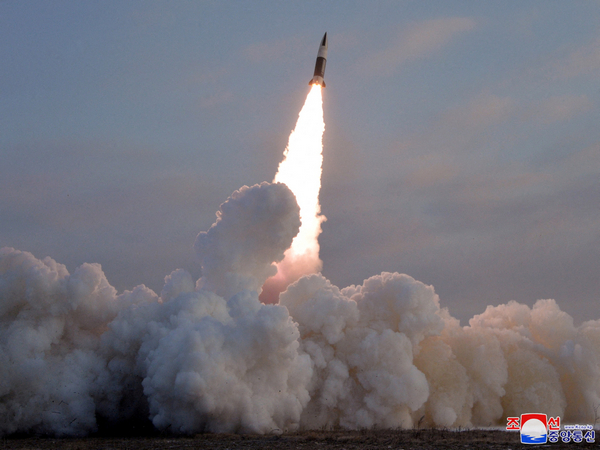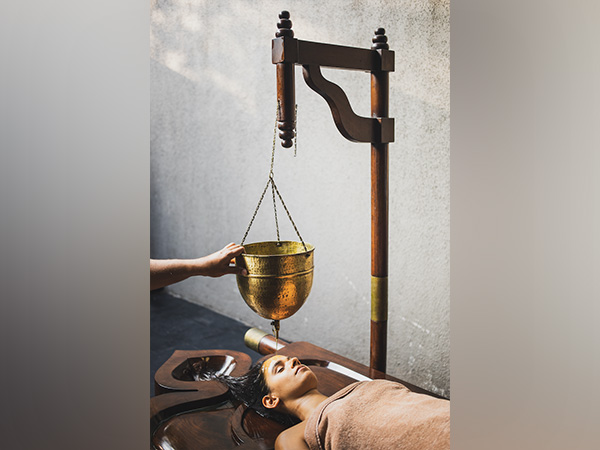Israeli strikes in Mount Lebanon villages kill 28, ministry says
Nov 14, 2024
Beirut [Lebanon], November 14: At least 28 people were killed on Tuesday in Israeli air strikes on two houses in central Lebanon where displaced families were reportedly living, the Lebanese health ministry says.
Twenty people, mostly women and children, were killed in Joun and eight others were killed near Baalchmay. Both villages are in the Mount Lebanon region and outside areas where the armed group Hezbollah has a strong presence.
The Israeli military said it struck Hezbollah "terror facilities". Earlier, it hit what it said were a number of Hezbollah targets in Beirut's southern suburbs.
Meanwhile, two people were killed by Hezbollah rocket fire in the northern Israeli town of Nahariya.
It came a day after Israel's defence minister ruled out a ceasefire with Hezbollah until its war goals were met.
The Israeli military went on the offensive against Hezbollah - which it proscribes as a terrorist organisation - after almost a year of cross-border fighting sparked by the war in Gaza.
Israel says it wants to ensure the safe return of tens of thousands of northern Israeli border area residents displaced by rocket attacks, which Hezbollah launched in support of Palestinians the day after its ally Hamas's deadly attack on Israel on 7 October 2023.
More than 3,200 people have been killed in Lebanon since then, including 2,600 in the seven weeks since Israel launched an intense air campaign followed by a ground invasion in the south, according to the Lebanese health ministry. Another 1.2 million people have been displaced.
On Tuesday morning, the Israeli military carried out at least 10 strikes on Beirut's southern suburbs, known as Dahieh, after issuing evacuation orders for 11 locations.
Lebanese media reported that several buildings were levelled, including a medical centre in the Bir al-Abed area, but there were no reports of casualties.
The Israeli military said it struck Hezbollah targets, including command centres and weapons production sites.
In the evening, the Israeli military declared that it had "dismantled a majority of Hezbollah's weapons storage and missile manufacturing facilities" that had been "systematically concealed beneath civilian buildings" in Dahieh.
Most residents of Dahieh - one of the areas where Hezbollah has a significant presence, along with southern Lebanon and the eastern Bekaa Valley - have fled because their neighbourhoods have been targeted repeatedly since September.
On Tuesday afternoon, 20 people were killed, including eight women and eight children, in an Israeli strike on a house in Joun, in the Chouf mountains near the southern coastal city of Sidon, the Lebanese health ministry said on Wednesday.
The state-run National News Agency reported that displaced families had been staying there.
Residents and a security official said another house where displaced families had taken refuge was hit in Baalchmay, 30km (20 miles) to the north-east, killing eight people and injuring five.
Wael Murtada told the Associated Press that the home had belonged to his uncle and that those inside had fled from Dahieh about 40 days ago. He said at least three children were among the dead.
The Israeli military said on Wednesday that the two strikes had hit a Hezbollah "terror facility" but gave no details.
Elsewhere in Lebanon, five people were killed in a strike in the southern village of Teffahta, according to the health ministry.
In the northern town of Ain Yaaqoub, Lebanon's Civil Defence agency said its first responders had recovered the bodies of 16 people, including four Syrian refugees, from the rubble of a residential building that was destroyed by an air strike on Monday night.
The Israeli military said its forces had targeted a "military structure with a terrorist inside".
It also said Israeli soldiers were continuing ground operations in southern Lebanon to dismantle Hezbollah infrastructure, including rocket launchers.
About 55 projectiles were fired by Hezbollah from Lebanon into Israel on Tuesday, according to the Israeli military.
One rocket hit a warehouse in Nahariya, killing two Israeli men in their 50s.
Hezbollah said its fighters had fired a barrage of rockets at an Israeli military base north of the town of Acre, and that it had also targeted troops stationed in several Israeli border communities.
A Hezbollah drone also hit the playground of a kindergarten in a suburb of the Israeli city of Haifa, but no-one was hurt.
On Monday, new Defence Minister Israel Katz wrote on X that he had told a forum of Israel generals that "there will be no ceasefire" until Hezbollah could no longer carry out such attacks.
Earlier, Foreign Minister Gideon Saar had said there was "a certain progress" after being asked by journalists in Jerusalem about a possible ceasefire.
Hezbollah spokesman Mohammed Afif told a news conference in Beirut: "We hear a lot of talk, but so far, according to my information, nothing official has reached Lebanon or us in this regard."
Lebanon's government has called for a ceasefire based on the full implementation of UN Security Council resolution 1701, which ended the last war between Israel and Hezbollah in 2006.
The resolution called for Lebanese territory south of the Litani to be free of any armed personnel or weapons other than those of the Lebanese state and a UN peacekeeping force.
Israel has long complained that the resolution failed to prevent Hezbollah from building a formidable military presence in south and firing rockets over the border.
Source: Fijian Broadcasting Corporation








